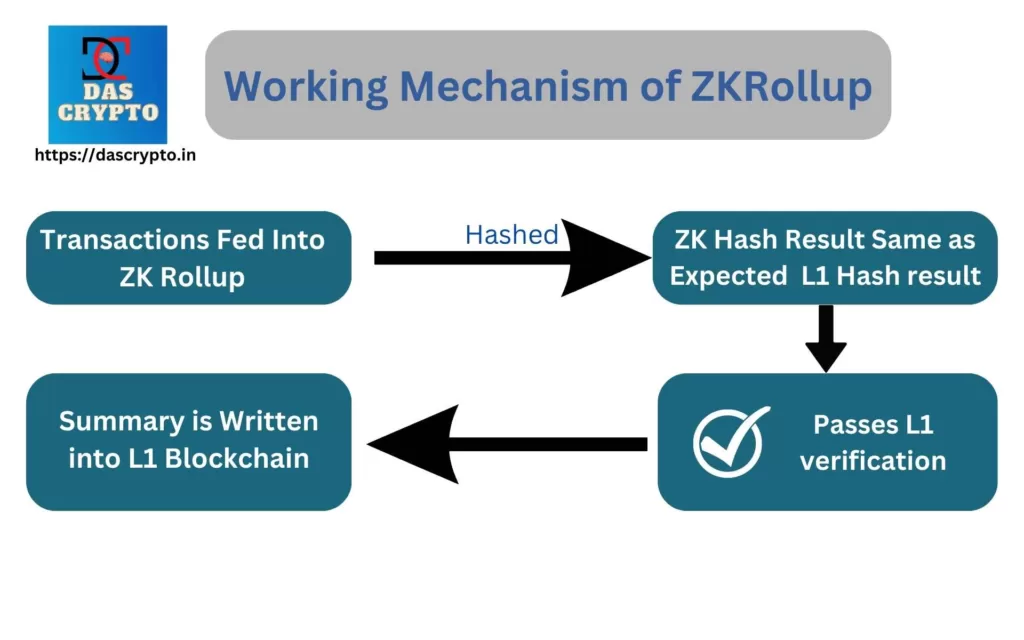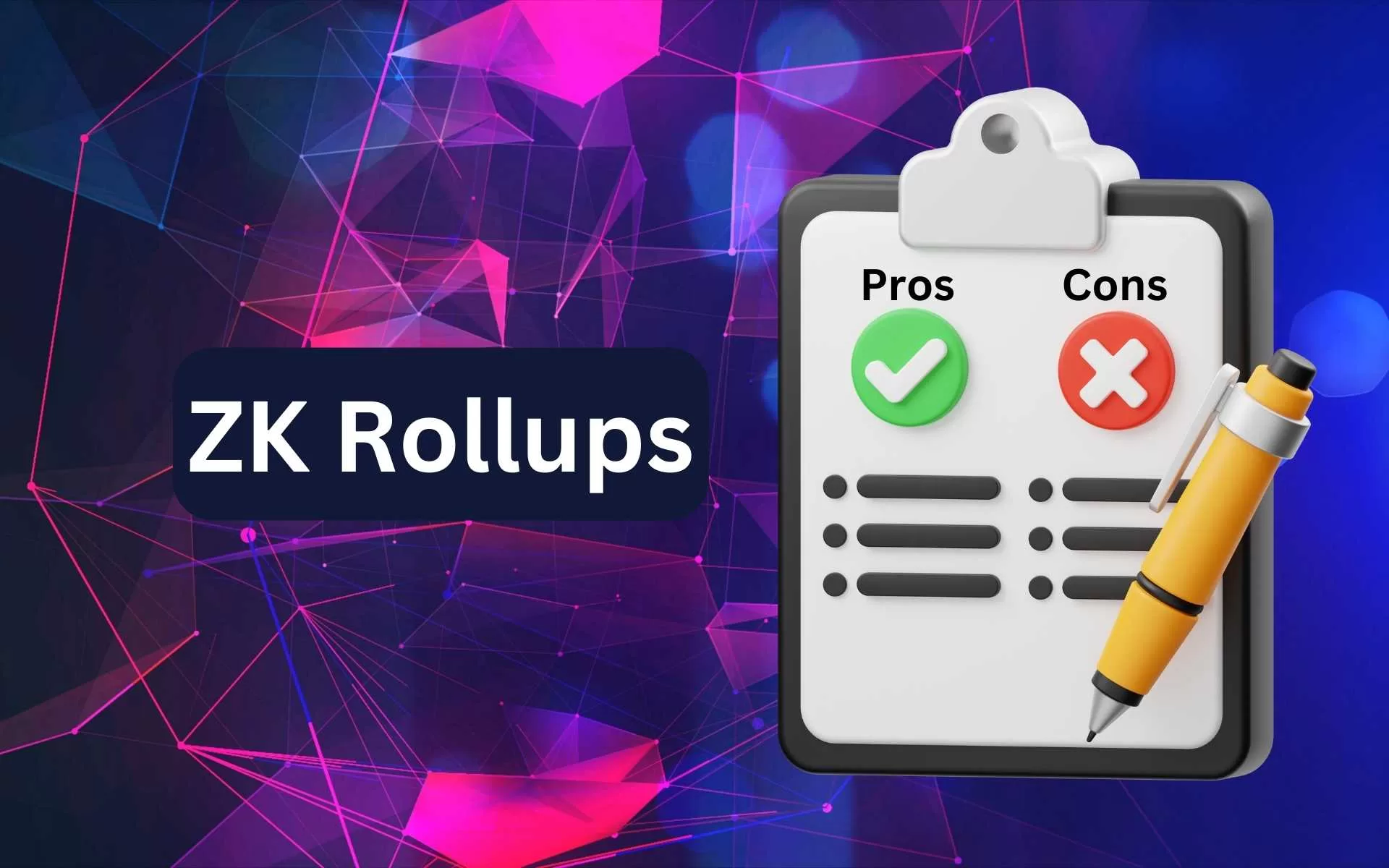Earlier we had published a complete article on Zero Knowledge Rollups. However, it was not possible to explain everything in that one article. Here, we will explore in-depth, the benefits and challenges associated with ZK Rollups.
Table of Contents
A Brief on ZK Rollups
Basically ZK Rollups are a method of bundling of transactions and verifying them off the L1 chain that has high security but low computing power (like Ethereum). These transactions in the whole block are verified by a L2 blockchain and the summary of transactions is verified using the L1 blockchain. If there is even a single discrepancy in the L2 verified data, it would produce a different hash result and the fault will be detected by L1 blockchain.

PROS
ZK Rollups have several benefits such as:
1. Transaction Capacity
High transaction throughput since most of the work is done by a L2 blockchain. The L1 blockchain just verifies the summary of transactions. This summary is verified using snapshots of L2 blockchain from time to time. The process is called state commitments.
2. Gas Fees
Inexpensive transaction costs as compare to L1 transactions. L2 blockchains are often build as scaling solutions and offer cheap transaction costs. Their high efficiency and low costs results from a blockchain network that is operated by lower number of nodes.
For example, Ethereum has over 2000 nodes while Polygon has 114 nodes as of 05 Aug 2023.
3. Security of Funds if ZK Rollup Malfunctions
Users can withdraw their funds from L2 blockchain even if the ZKRollup is not working. This is not possible incase of sidechains or parachains where network inactivity means your funds are stuck.
4. Single Node can Power ZK Rollups
Only one node in L2 blockchain is enough to verify all the transactions because all of the transaction summary (state commitments, snapshots) are submitted to L1 and verfied by L1 blockchain.
CONS
However, there are a few disadvantages of ZK Rollups too.
1. Implementation
They are harder to implement than their counterparts like Optimistic Rollups. However, this is a good tradeoff because ZK rollups are far more secure and reliable than its counterparts. There are lesser security issues and higher trust.
2. EVM Compatibility
They may not offer all the smart contracts or functionalities.
L2s may have their own virtual machines and not function on EVM. L2 blockchains like Polygon have their own Virtual Machines dedicated to ZKRollups such as ZKEVM.
3. Liquidity Issues
They fragment liquidity, which means that they might suck transactions from the base layer that a cryptocurrency might be illiquid for the native L1 blockchain transactions.
However, such issues are rare since most L1s only need scaling solutions because they cannot handle the overwhelming numbers of transactions themselves. Further, a person transferring a sum which is significant will always use a L! blockchain.
Scaling solutions are often for day-to-day transactions.
Also Read: ZK Rollups vs Optimistic Rollups




